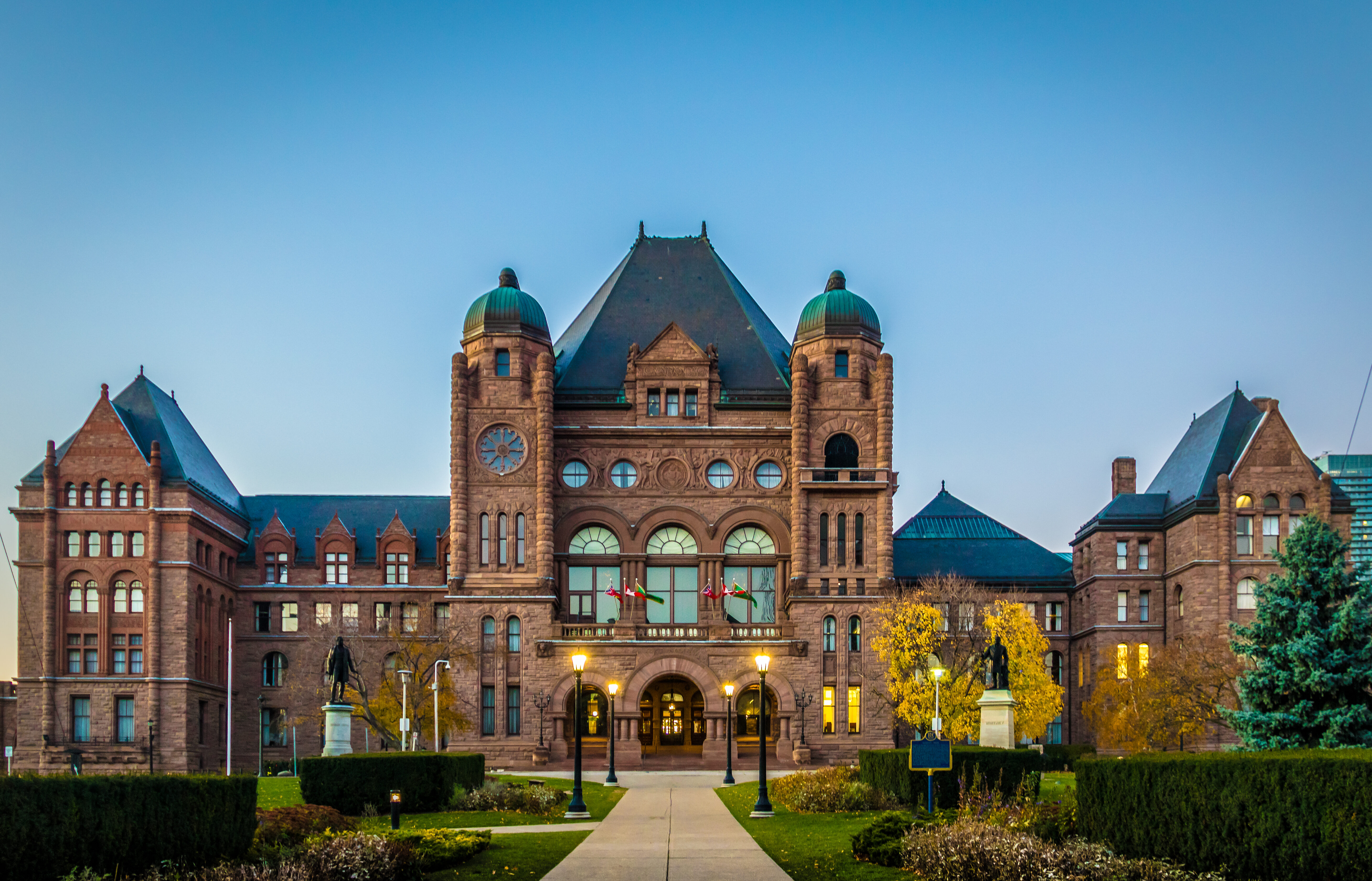
Queen’s Park Returns
The Ontario Legislature resumes on February 20, after a long winter break. The new political season will pit a government with no shortage of struggles against opposition parties still trying to find their footing.
Ontario is more than two years away from its next scheduled election, set for June 2026. The most recent polls suggest that Premier Doug Ford’s Progressive Conservatives maintain an advantage, with the Liberals under new leader Bonnie Crombie trailing behind. The parties will face an electoral test in the coming months, with by-elections needed to fill PC seats in Lambton—Kent—Middlesex and Milton. As Crombie does not have a seat in the Legislature, she will be under pressure to contest Milton – a plausible riding for her, as the former PC MPP won by only 4 points in 2022. Last year, by-election outcomes twice changed party standings in the Legislature, with the Liberals gaining Kanata—Carleton from the PCs, and the Greens taking Kitchener Centre from the NDP.
Doug Ford’s government plans to return with a push to Get It Done – literally. On Tuesday, the government will table the Get It Done Act, an omnibus bill with provisions ranging from a ban on highway tolls to the end of license plate renewal fees, along with continued changes to local land use and planning powers meant to facilitate faster housing construction. This bill will be introduced to a Legislature with only six outstanding pieces of government legislation before it, as the PC majority has efficiently cleared the decks and secured Royal Assent for much of the government’s agenda to date:
- Bill 149, Working for Workers Four Act, 2024
- Bill 151, Improving Real Estate Management Act, 2023
- Bill 153, Building Infrastructure Safely Act, 2024
- Bill 155, Agricultural Research Institute of Ontario Amendment Act, 2023
- Bill 157, Enhancing Access to Justice Act, 2023
- Bill 159, Preventing Unethical Puppy Sales Act, 2023
With the new omnibus bill, Ford’s PCs are looking to rely on their traditional appeal to Ontarians’ pocketbooks, but they are also trying to get their housing agenda back on track. Last year’s reversal of Greenbelt changes and the ongoing RCMP investigation into the government’s actions are a low point, and will continue to weigh on the government in 2024. Ford is also struggling to explain the government’s decision to move ServiceOntario centres into Staples stores via a sole-sourced contract, a decision that exposes him to more criticism for the government’s closeness to the corporate sector.
The Ford government faces another challenge over the course of 2024: federal politics. Since the pandemic, the PCs have made much of their collaborative relationship with the federal Liberals. But with the deterioration of the Trudeau Liberals in the polls, and growing expectations that Pierre Poilievre’s Conservatives will win the next federal election, Ford has begun to distance himself, particularly on the carbon tax. Ford’s Get It Done Act will create a new requirement for a referendum before a carbon tax can be imposed in Ontario, and has taken to attacking Bonnie Crombie as the “queen of the carbon tax”. Ford is also contending with his caucus’ temptation to run federally. The upcoming Milton by-election is the result of former MPP Parm Gill resigning to run federally, and other PC MPPs could be looking at their options – that is, if the federal party wants them.
Ontario’s Official Opposition is still the NDP under Marit Stiles, though Bonnie Crombie and the Liberals seem to draw more attention. Nonetheless, the NDP is going into the new session focused on housing, healthcare and the cost of living, looking to define itself against the resurgent Liberals.
The Ontario Liberals feel more confident going into the session, though they will be without Bonnie Crombie in the Legislature until she finds a seat. The party points to improved fundraising since last year’s leadership election, which has allowed them to pay off their 2022 campaign debt. The party added a caucus member by winning the Kanata—Carleton by-election, and is optimistic about Milton, whether or not Bonnie Crombie runs there.
Ontario’s Green Party now stands at two seats, after electing Aislinn Clancy in the Kitchener Centre by-election. The party is showing continued strength in some parts of southwestern Ontario, but a wider breakthrough continues to elude them. The Greens, NDP and Liberals struggle to separate themselves, all presenting a center-left opposition to Doug Ford.
PAA will be watching closely when the Legislature returns – not least of all for the omnibus Get It Done Act. Like any omnibus bill, there are likely to be surprises. The coming session will show whether the Ford PCs can stay on their pocketbook-friendly, pro-housing track, or whether they are derailed by crises of their own making; or if one of Ontario’s opposition parties break from the pack and present a credible challenge. Two years from an election, much is still to be determined.